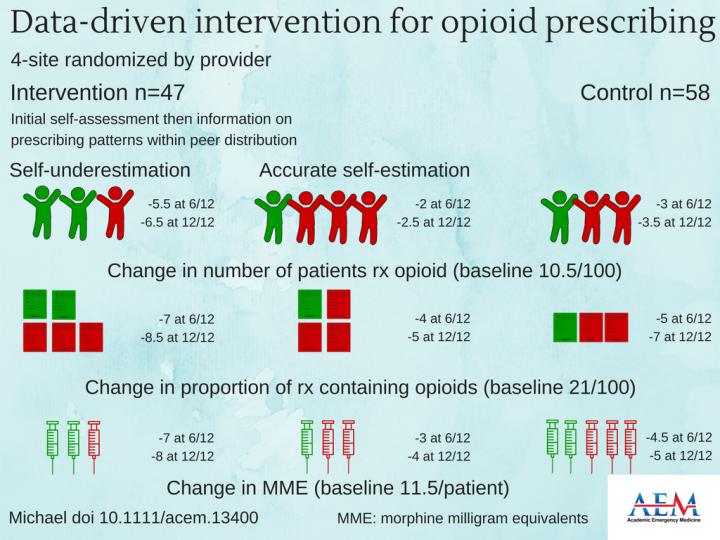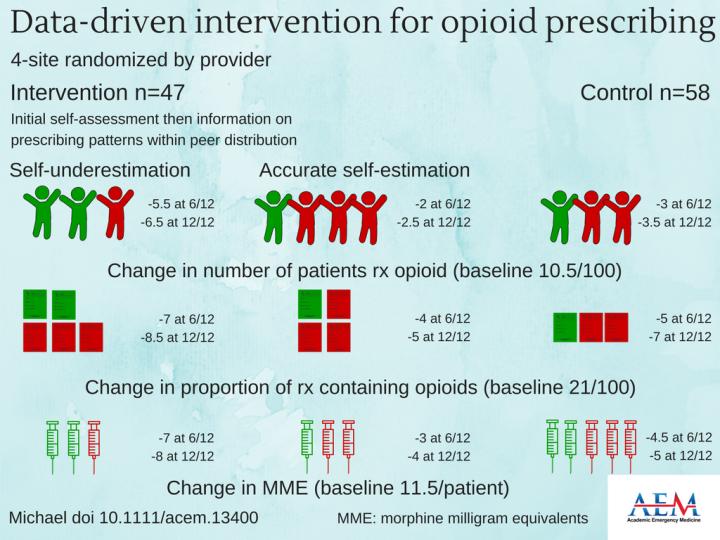
Credit: Kirsty Challen, B.Sc., MBCHB, MRES, PH.D., Lancashire Teaching Hospitals, United Kingdom.
DES PLAINES, IL — Asking emergency department (ED) providers to self-identify their opioid prescribing practices and then providing them with timely, clinically relevant, individualized, and actionable feedback on their actual opioid prescribing data, significantly decreases future opioid prescribing among providers who underestimate their baseline prescribing. That is the finding of a study to be published in the May 2018 issue of Academic Emergency Medicine (AEM), a journal of the Society for Academic Emergency Medicine (SAEM).
The lead author of the study is Sean S. Michael, MD, assistant professor of emergency medicine at the University of Colorado Denver School of Medicine.
The study, by Michael, et al, found that providers who initially underestimated opiate prescription rates had statistically significant decreases in opiate prescribing when compared to providers who were more accurate in initial self-assessment of prescribing rates. The randomized trial exposes important gaps in providers' self-perceptions of opioid prescribing and demonstrates that a simple, data-driven intervention using query-reveal methodology may decrease future prescribing, particularly among providers who underestimate their own prescribing practices.
The findings suggest that current and future interventions in which provider adherence to guidelines is expected, including opioid interventions outside the emergency department and other quality and safety initiatives, should directly address the potential barrier of inaccurate provider self-awareness.
Gail D'Onofrio, MD, MS, professor and chair, Yale School of Medicine Department of Emergency Medicine, who is internationally known for her work in developing and testing interventions for department patients with unhealthy alcohol and other drug use, commented:
"The results have real world applicability. A simple intervention enhancing safe prescribing is one of several opportunities the emergency physician has to combat the current opioid epidemic."
###
The Society for Academic Emergency Medicine (SAEM) is a 501(c)(3) not-for-profit organization dedicated to the improvement of care of the acutely ill and injured patient by leading the advancement of academic emergency medicine through education and research, advocacy, and professional development. To learn more, visit saem.org.
Media Contact
Stacey Roseen
[email protected]
847-257-7227
@SAEMonline
http://saem.org
Related Journal Article
http://dx.doi.org/10.1111/acem.13400





